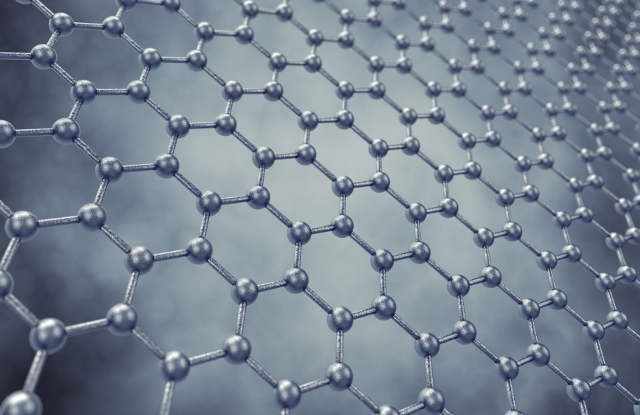Nanoscale coatings of the 2D material hexagonal boron nitride (h-BN) have been shown to prevent materials from oxidizing under high temperature conditions, in a news study from Rice University.

Graphene's success has led to research into other 2D materials - hexagonal boron nitride is one of the most notable examples. Image credit: Photos.com
Whilst graphene gets the lion's share of the media attention, some other 2D materials are proving to be just as revolutionary.
One of these is a hexagonal form of boron nitride, which has a similar structure to graphene, but a completely different set of properties.
Unlike graphene, which has superb thermal conductivity, films of h-BN just a few nanometers thick can protect materials such as steel and nickel from corrosion, up to temperatures of 1100°C.
The h-BN was created by the researchers using chemical vapour deposition (CVD) - the same technique favored for creating sheets of monolayer graphene. The team experimented with depositing small patches of the coating on a range of substrates, but they are confident that the process can be scaled to meet industrial production requirements if the technology takes off.
Protecting materials from high-temperature oxidation damage is already an established industry - fields such as aerospace, oil exploration and industrial manufacturing are reliant on a range of solutions to keep components in top working order for as long as possible, even under highly strenuous conditions.
Pulickel Ajayan, a professor at Rice who led the research along with Prof. Jun Lou, commented:
"What’s amazing is that these layers are ultrathin and they stand up to such ultrahigh temperatures. At a few nanometers wide, they’re a totally non-invasive coating. They take almost no space at all.”
It is interesting to see another bulk application for novel 2D materials - which are likely to be commercialized much sooner than the more exciting "revolutionary" electronics applications, due to the less demanding constraints on material quality.
“We think this opens up new opportunities for two-dimensional material. Everybody has been talking about these materials for electronic or photonic devices, but if this can be realized on a large scale, it’s going to cover a broad spectrum of applications.”
- Prof. Jun Lou
Sources